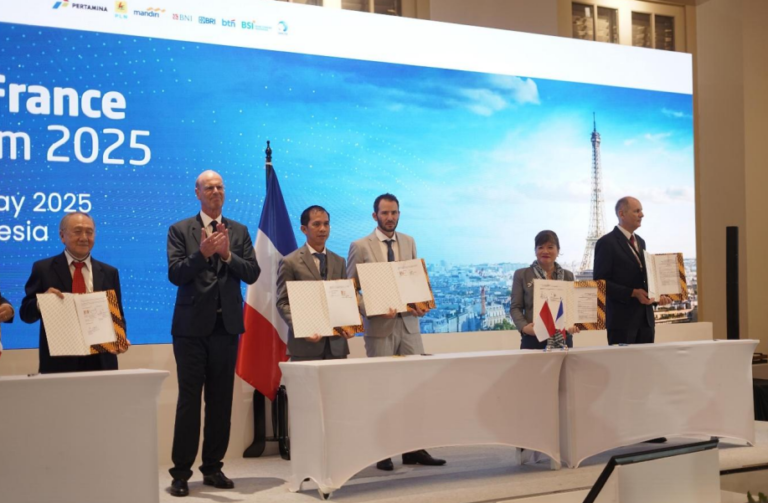Pertamina NRE Collaborates with MGH Energy to Develop Renewable Synthetic Fuel Projects
Pertamina NRE, a subsidiary of Indonesia’s state-owned oil and natural gas corporation Pertamina, has announced a strategic partnership with France-based decarbonization technologies firm MGH Energy to co-develop renewable synthetic fuel production projects.
The collaboration, formalized through a memorandum of understanding (MoU), aims to advance the production and utilization of sustainable fuels in the maritime and aviation sectors. The MoU was signed during a France-Indonesia business event attended by French President Emmanuel Macron.
Under the agreement, Pertamina and MGH Energy will conduct comprehensive studies on renewable synthetic fuels, regulatory frameworks, market dynamics, and production and distribution infrastructure. The initiative will not be confined to Indonesia and France but will also explore opportunities in countries like Morocco and Australia, where MGH Energy has a presence.
Pertamina is committed to expanding its product portfolio to include environmentally friendly fuels as part of its efforts to align with evolving market trends and stringent environmental regulations, such as those outlined in the International Maritime Organization’s Net Zero Framework.
As Indonesia transitions from a major oil exporter to a net importer due to increasing domestic demand and limited refining capacity, Pertamina is actively seeking cleaner fuel alternatives to meet the country’s energy needs sustainably.
Strategic Partnerships for Sustainable Growth
In addition to its collaboration with MGH Energy, Pertamina has forged partnerships with other industry leaders to accelerate its transition towards cleaner energy sources. In December 2023, the company joined forces with Japan’s energy giant JERA to explore infrastructure investments supporting the adoption of low-carbon fuels such as liquefied natural gas (LNG) and ammonia/hydrogen.
Through these strategic alliances, Pertamina aims to contribute to Indonesia’s goal of achieving net zero emissions by 2060, demonstrating its commitment to environmental sustainability and innovation in the energy sector.

